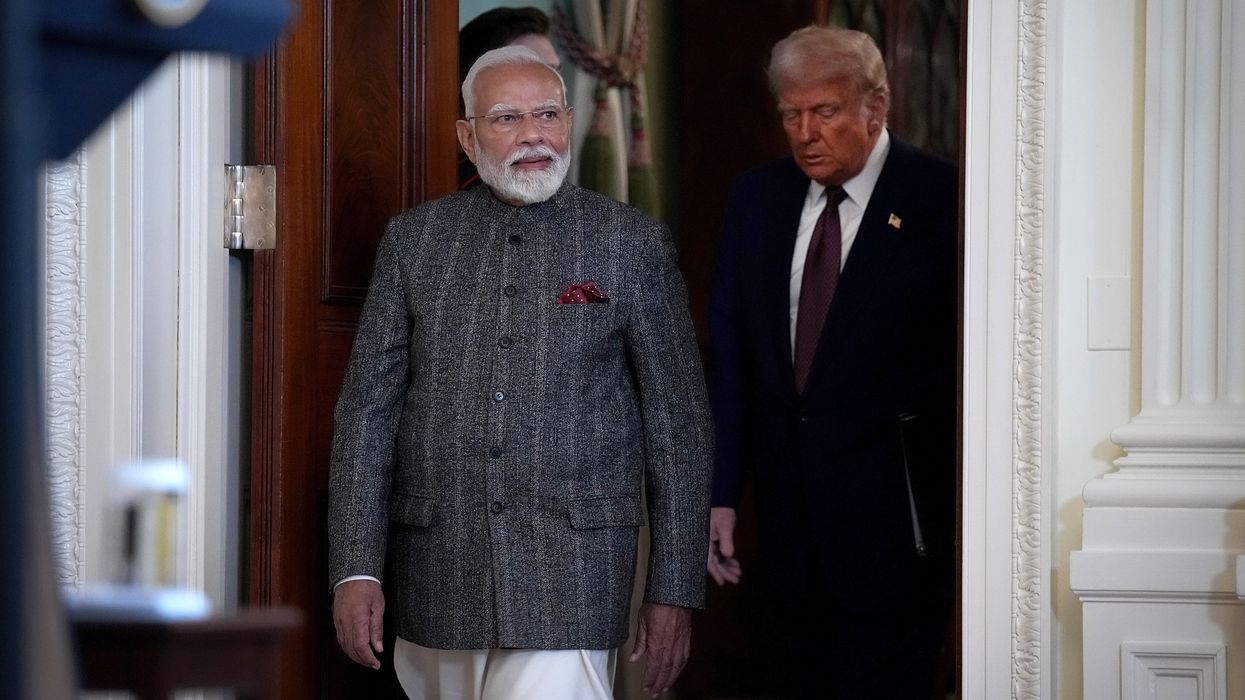Highlights:
- Trump links India’s high tariffs and trade barriers to new punitive measures.
- He warned of an unspecified “penalty” over India’s defence and energy ties with Russia.
- Trade talks between the US and India have stalled over market access disagreements.
US PRESIDENT Donald Trump announced on Wednesday that imports from India will face a 25 per cent tariff. He also mentioned an unspecified "penalty" for New Delhi’s purchases of Russian weapons and energy.
The new tariffs will take effect on Friday, Trump posted on his Truth Social platform.
"Remember, while India is our friend, we have, over the years, done relatively little business with them because their tariffs are far too high, among the highest in the world, and they have the most strenuous and obnoxious non-monetary trade barriers of any country," Trump said.
Trump cites trade deficit
In another post, Trump wrote in all caps that the United States has a "massive" trade deficit with India.
ALSO READ: Key issues in India, US trade talks
He said India has "always bought a vast majority of their military equipment from Russia, and are Russia's largest buyer of ENERGY, along with China, at a time when everyone wants Russia to STOP THE KILLING IN UKRAINE."
Trump did not give details of the penalty he referred to for India’s trade with Russia.
Measures linked to Russia-Ukraine conflict
The announcement comes as the 79-year-old Republican has indicated plans to increase US pressure on Moscow to stop the fighting in Ukraine and negotiate a peace deal.
On Tuesday, Trump said he was giving Russian president Vladimir Putin 10 days to change course in Ukraine or face unspecified punishment.
"We're going to put on tariffs and stuff," he said, but added, "I don't know if it's going to effect Russia because obviously he wants to keep the war going."
ALSO READ: Modi denies any foreign intervention in India-Pakistan ceasefire
Trade talks with India stalled
India, the world’s most populous country, was among the first major economies to start broader trade talks with Washington.
However, after six months, Trump’s wide-ranging demands and India’s reluctance to fully open its agricultural and dairy sectors have prevented a deal that would protect it from punitive tariffs.
On Tuesday, Trump had said India could face a 20–25 per cent rate since no trade deal had been finalised. The announced tariffs will significantly increase from the current 10 per cent baseline tariff on Indian shipments to the US.
Wider global tariff threats
Trump has aimed to reshape the global economy by using US economic power to pressure trading partners with tariffs and push foreign companies to move operations to the United States.
Talks are ongoing with the European Union, China, Canada and other major partners.
He has also warned that dozens of other countries could face higher tariffs from Friday unless they strike trade deals. Among them is Brazil, which Trump has threatened with 50 per cent import tariffs, partly to pressure the country to halt the trial of former president Jair Bolsonaro on coup charges.
(With inputs from agencies)





